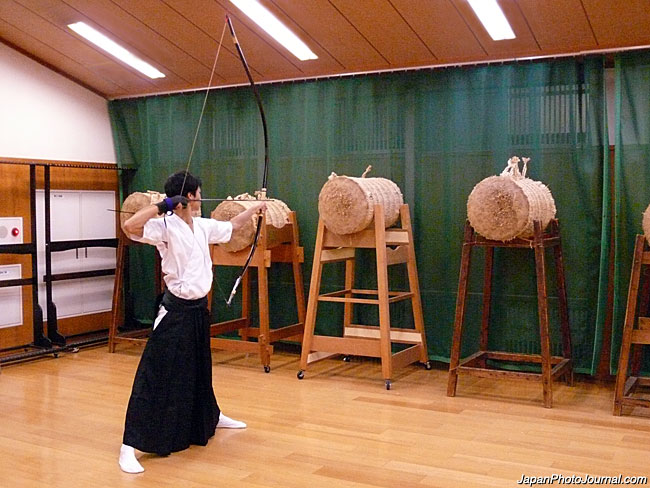In then end, improvements in your mental skills improve your playing above all else.
We know that the mental aspects are amazingly important. We’ve seen MRIs of musicians practising. MRIs of musicians mentally practising. And they look exactly the same.
I’ve also noticed that the small changes in my client’s mental skills have the largest effect on their playing.
Personally, I’ve caught myself making physical mistakes when mentally practising. For me, that was a sure sign that there wasn’t actually a physical problem with what I was doing. It was really all mental (and a fairly amusing form of self-sabotage). Once I’d corrected the problem mentally, the physical problem went away.
You can apply these mental skills in both practice and performance. Not that they’re really that different in the long run.
Here’s how I think about the two. (I’ll cover performance in another blog post, this one has gotten out of hand length-wise).
Practice
Practice is permission to succeed
Practice is a ritual that gives you permission to perform at your best. While practice is important for improving your physical skills. From a mental point of view, it’s a way of saying to yourself, “I’ve done the work, now it’s ok for me to perform well”.
Pattern Matching
The brain is an amazing pattern matching machine. When we practice we need to take advantage of this awesome tool.
In the end, there’s only one thing that counts in music, and that’s how it sounds. Music has only one KPI.
The ultimate goal of practice is to equate sound with muscle movement. So when you hear (either in your head or on a recording) a particular sound, your body knows what muscle movements to carry out to create that sound. We want to work towards removing all intermediate steps and eventually arriving at sound = muscle movement.
This is the whole purpose of ear training and practice in general. It’s also why we learn scales and scale patterns, to help bridge that gap between sound and action.
So, instead of concentrating on the physical when you practice, you should listen to the sounds you’re making. Use them as something that indicates that there may be a physical thing wrong. On guitar, for example, you may start to notice that a buzzy sound equates with your finger not being close enough to the fret. That a ‘dead’ sounding string may be a finger accidentally leaning over onto an adjacent string.

Don’t stop when you hear the mistake. Be aware of it, and fix it on the next repetition of the phrase that you’re practising. Slowly repeating small sections of what you’re learning is really effective..
When you practice small sections over and over, you give your pattern matching brain a chance to compare repetitions. This allows it to determine which options have faults in them and which are the more error free versions.
I think of this like target practice (think archery). You shoot at the target, you might have aimed a little high and you miss. You adjust your aim and try again, perhaps being a little low. Next shot you hit the target. Then miss, a little high, then hit it again. As you shoot more you become more consistent as you can reference the misses and make adjustments.
If we make the mistakes and stop, we don’t give our brain any reference points to improve against. Worse still, if we make a mistake, get annoyed and stop, we’re highlighting that mistake for our brain. The brain then thinks that the mistake is important and it grabs hold of that. Instead, show the brain that the mistake is a statistical anomaly. It will figure out that that’s not what you’re trying to achieve.
Practising in this way allows us to always improve by solving problems as they become audible to us. As we learn to hear more acutely, we’ll solve more and more subtle problems.
Long-Term Goals
When I’m working on a new skill, I like to set myself up for a three-month goal. Although “goal” is probably not the best term in this case. I decide that I’m going to do the same thing for three months and not really worry about the outcome. I’ll just concentrate on making gradual improvements over that period of time.
I find that goal orientated learning in music is rarely effective. If you’re inclined towards perfectionism, the long term ‘not goal’ is the best way to help yourself improve.
If you take a goal oriented approach and try to get it perfect on one day. Or, try to get it perfect by a specific date. You will either not achieve your goal, or slow your progress so much that it becomes a very painful process.
The trick, in this case, is to ‘just do it’, listen to the detail and make minor improvements when you hear faults. You’ll eventually do this without thinking about it. (see our blog post on the ‘Four Stages of Competence‘).

There is a great book ‘Zen in the art of Archery‘ that you’ll find in the instrument cases or bookshelves of many great players. It outlines the story of a Westerner who already had some archery experience learning the art of Kyūdō (Japanese Archery). There are many parallels between practising that art and learning music. In the book, the Kyūdō master sets up the targets in front of the student archer so that they can’t miss. This stops the student from worrying about the goal of hitting the target. This then allows them to focus on all of the other aspects of archery that in the end, are much more important.
Trying Fails
Another great book that we often recommend to clients is ‘The Inner Game of Music‘. There’s a section in the book where a student attempts to demonstrate to a teacher how she makes a mistake in her piece. Much to her chagrin, she plays the problem section perfectly several times. By giving herself permission to fail, she’s stopped worrying about it. As a result, she has performed the piece exceptionally well. This is another example of where the mental outweighs all other factors in playing music.
Speed
Another place where trying fails is trying to go faster. Even if you are playing a rapid passage, you should never be ‘thinking fast’. Think smooth, even, focus on the rhythm, but never the speed. Smooth and rhythmic playing is relaxed whereas fast is tense. It’s often counterintuitive that playing mechanically even notes sound smooth and organic. You never need to worry about speed, it comes with time.
As I mentioned earlier, I’ll follow up this post with a second part next week. In the meantime, feel free to comment on our blog, Facebook page or Twitter feed, or ask questions via email ( help@independentmusic.com.au).
Andrew Farnham is the director of IMA Music Mentoring where he leads the Guitar Lessons team.
Book an introductory music lesson and start following your musical dreams.
- Photo credit: A Health Blog via Visual Hunt / CC BY-SA
- Photo credit: mikerastiello via Visualhunt.com / CC BY-NC-ND
